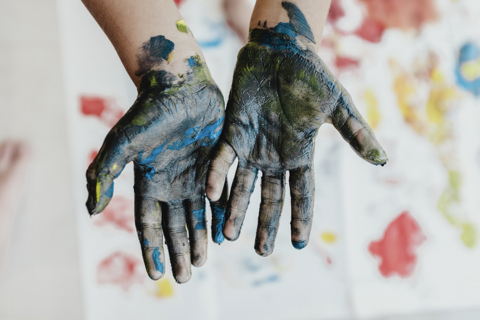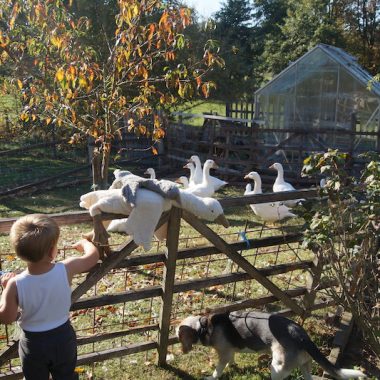Clean Homes or Happy Children? Let’s Play!
Children are special; they can tirelessly run, roll around, build sandcastles, walk imaginary dogs, stack blocks, or simply spend hours playing hide and seek. Through play, children develop cognitive abilities and learn various things, such as self-awareness and emotional expression. They learn to follow game rules, which helps them internalize behavioral norms, develop self-regulation skills, and learn how to interact with other players and build relationships. They also explore conflict resolution strategies (e.g., when two toy trains collide, will they continue to push each other, or will one let the other pass?).
Nowadays, parents rush to teach their children letters and numbers, striving for their child to quickly learn to read, write, and count. Parents want their children to engage in meaningful activities that develop cognitive skills and talents. However, play is a very important part of development for both toddlers and school-aged children. It nurtures intellect, language, imagination, fine and gross motor skills, and allows the release of various emotions. For children, play is not work or learning—it’s an expression of exploring a new, mysterious, and undiscovered world.
When Does a Child Encounter Play?
A child first encounters play very early, as a baby. It’s the adult’s role to create a playful environment where the infant can explore and feel the joy of play. These are the first songs, clapping games like “patty-cake,” peekaboo, later wrestling with dad, tickling with mom, building block towers, and more. All of these games, when played in a warm and friendly relationship between parents and child, bring positive emotions to everyone involved, strengthen family bonds, and positively stimulate the child’s nervous system. Play helps a child shape their self-image: who they are, what they can do, what they know, and what they want. In play, reality and imagination meet, and the boundaries between play and creativity blur. The first creative solutions emerge during play, which may later inspire a child to express themselves in the arts. In this playful environment, the child feels safe and can freely express their feelings (e.g., while playing with dolls, one might “encounter” a stuffed dog, prompting the child to cry, pretending that the doll is scared of the dog, while another doll might be brave and chase the animal away). This imaginative play helps develop thinking, self-control, and emotional understanding, as well as a better grasp of the connection between emotions and behavior.
What Forms of Play Are There?
As the child grows, so do the forms of play. A 2-3-year-old plays alone, building block towers, throwing balls, or pushing toy cars. These games help the child become familiar with shapes, sizes, weights, and the concept of object permanence (e.g., even when a ball is thrown or hidden, it still exists). Slightly older children (4-6 years) enjoy role-playing games and prefer the company of their peers while playing. Through such play, children allow themselves to escape reality, “try on” various social roles, professions, and emotional states, and observe how others react in the game, which further enriches their social experience. They gain a better understanding of the world around them, learning various skills through play. School-aged children, when playing with peers, learn to follow rules, social norms, and through communication and negotiation in games, discover that objects are understood and perceived differently by others. In short, children learn that their viewpoint is not the only one; there are other perspectives too. They also realize that different people may understand things differently from them, and all perspectives can be valid. Only play with other children can teach this special ability.
What Does Play Mean in a Child’s Life?
Play remains very important throughout a child’s and even an adolescent’s life. First, it’s a spontaneous, creative, and enjoyable activity. Second, it’s a way to understand how the world works. Third, it’s a means of learning the intricacies of relationships and creating a sense of belonging. A. Adler emphasizes that feeling important and belonging to a group is crucial for healthy development. The family is the first group a child belongs to. Shared play creates a sense of belonging and strengthens the bond with the child, making them feel important and loved. Parents can always be close by, supporting the child’s desire to play, participating in their games, and sometimes even initiating them. Younger children may need help or guidance on how to play, while older ones might need an audience for their “theatrical” performances, where parents can marvel at how talented their child is. With teenagers, playing a game of Monopoly and enjoying time together can be rewarding. Adults often demand strict rules and order during play, insisting that children not make a mess, scatter toys, run around, etc. This can cause children anxiety and fear, stifling their desire to play and imagine, which in turn hinders other important developmental processes. Parents should find ways to introduce household rules through play (e.g., teaching children to clean up by picking up blocks and tossing them into a basket after each game or cleaning up while singing a song like “Let’s clean up the toys…”). During play, a child should feel safe and calm, allowing them to immerse themselves fully in the world of play.
What Should Parents Know?
Parents should understand that play is a pleasant activity and only valuable if all participants enjoy it. If parents do not enjoy the game they’re playing with their child, the child will quickly sense this and may feel guilty, thinking their presence irritates their parents. So, parents, even if only for a short while, forget about keeping the house perfectly tidy and immerse yourself in the world of play—it’s so much fun! After all, there’s truth to the saying: clean homes or happy children!
By Psychologist Ieva Lingienė





